The Zazamalala model
The Zazamalala concept for nature protection and reforestation encompasses a holistic approach, including protection of animals and plants, and involving the local people.
Apart of reforestation and breeding of endangered animals, community development is a prime issue. This means giving as many local people as possible paid work in the forest and thereby making them economically independent. It also implies education about issues such as nature conservation, climate change, health care. Moreover, it emphasizes education on local schools, which means supporting these schools with money and materials as well as repairing the buildings. Finally, but very important, it means providing solar cookers to local mothers and thereby making them independent of fuelwood from the forest.
This wholistic approach conforms to the 2015 Sustainable Development Goals of the United Nations.
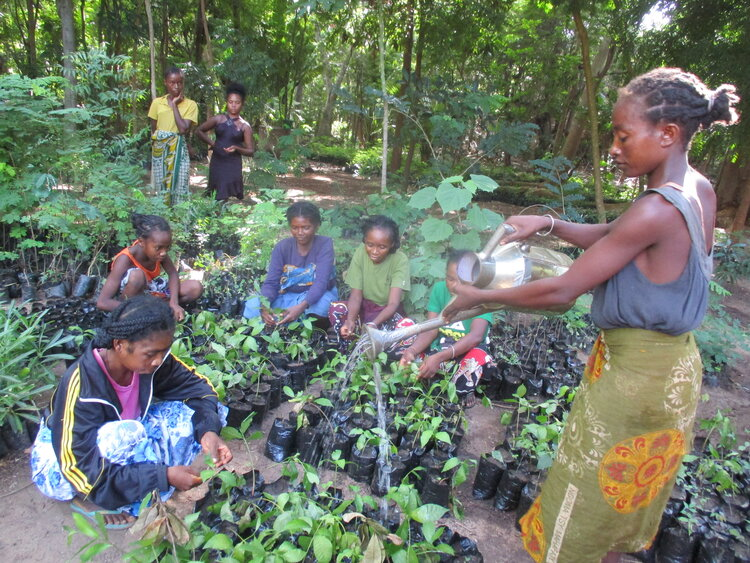
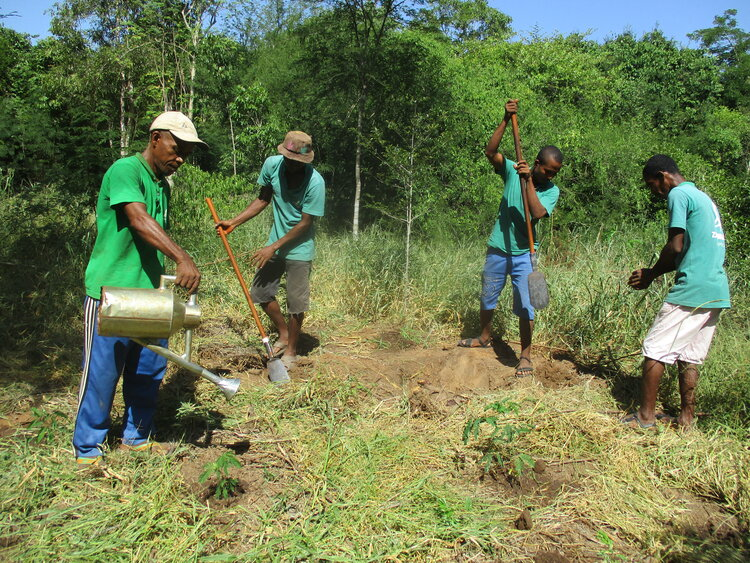
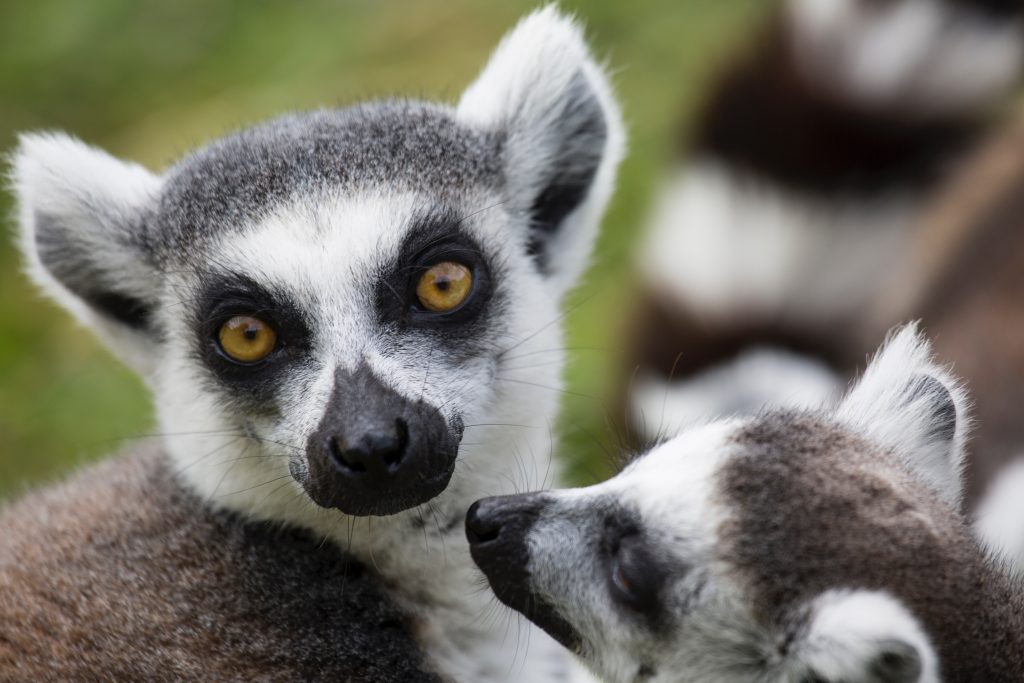
Reforestation
Expanding the 3% of Madagascar dry forest that remains
It took me 50 years of study, a million of advise and a lot of trial and error to understand how you should reforest west Madagascar.
The characteristics of this model are: reforestation with 80% (slowly-growing) Malagasy trees endemic to the area with a target of at least 100 different species of trees and shrubs per hectare, and 20% (fast growing) exotic trees of 2 species that proved to be superior to the about 20 other exotics I have tested: Rain tree (Albizia saman) and Elephant-ear tree (Enterolobium cyclocarpum).
These exotics give the area soon the appearance of a young forest and provide shade on the ground, crucial in the continuous battle against grass fires. They are also used by local animals and provide a thick healthy layer of humus. The exotic trees are logged after 20 years for local consumption and a piece of original Malagasy wilderness remains.
In practice, local people dig 1000 holes per hectare and plant seedling trees. These people also take care of the maintenance of the forest, e.g. clean fire lanes and weed around seedlings. Vulnerable tree species are regularly watered and pests are controlled. Dead seedlings are replaced.
This maintenance lasts for 10 years, when the crowns of the trees provide enough shade on the ground to prevent grass from growing, minimizing the risk of bush fire. After this period, maintenance is restricted to a yearly cleanup of fire lanes and taking down of dead branches. The forest is guarded against illegal logging and poaching, one guard per five hectares, paid for by the Zazamalala foundation.
Biodiversity
The deciduous forests of west Madagascar are the most threatened habitat in the world. The merely 3% that remains is a treasury of rare animals and plants – nearly all on the brink of extinction. According to the 2021 Red List of Malagasy tree species, 90% of the about 900 trees from this forest are threatened with extinction. A majority of the animals is currently classified as endangered or critically endangered, such as the Fossa (Cryptoprocta ferox), Verreaux’s Sifaka (Propithecus verreauxi), Western Fork-crowned Lemur (Phaner pallescens), and Flat-tail tortoise (Pyxis planicauda).
In the Zazamalala botanical garden many rare plant and tree species produce seeds for reforestation. We try to have a maximum yield and our experienced employees treat the seeds in a way that most turn into seedlings. This is particularly important with endangered species and those not yet described scientifically.
Animal prodtection is crucial for the sustainable biodiversity of the Zazamalala forest. For example, we assigned a special guard to protect a group of 11 Verreaux’s Sifaka against the possibility of poaching. Stimulation of reproduction is done by placing of nesting boxes for birds and nocturnal lemurs.
We are very proud of the zazamalala turtle breeding program.
The critically endangered Flat-tail Tortoise (Pyxis planicauda)lives in a small part of the dry deciduous forest of west Madagascar. The last remaining males and females rarely meet and when they do, the female produces only a single egg per year.
In the Zazamalala botanical garden, we keep many males and females together to maximize encounters. We release the young tortoises after two years in the protected Zazamalala forest. Please help us to protect these cuties! For €20 you adopt a Flat-tail tortoise.
The Madagascar Big-headed Turtle (Erymnochelys madagascariensis) lived for millions of years in de rivers and lakes of west Madagascar. Nowadays they are almost gone and have a IUCN classification of critically endangered. At Zazamalala we breed them in large semi-natural containers. We release the young after one year in the vicinity of Zazamalala. The adult turtles are aggressive to other turtles and that’s why we need more containers. Please help us! For €2 per month you’ll adopt a Big-head.
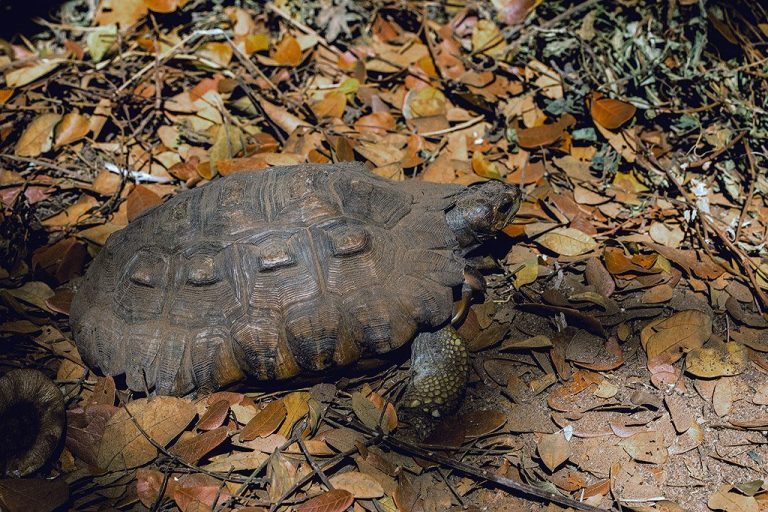
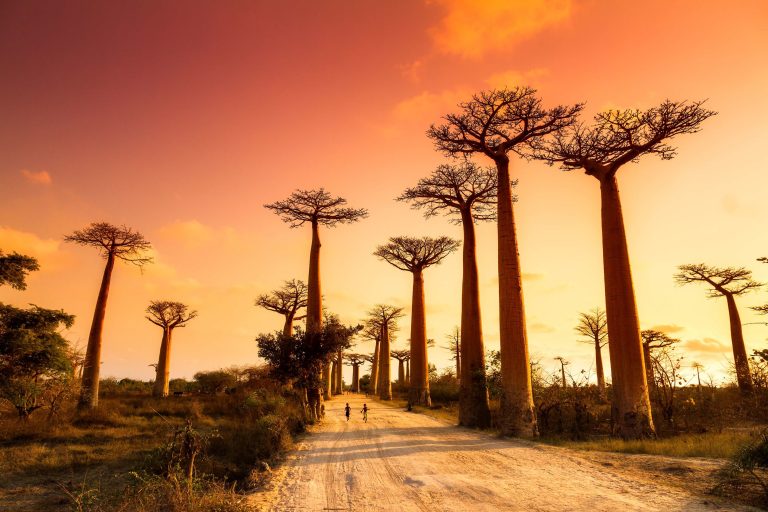
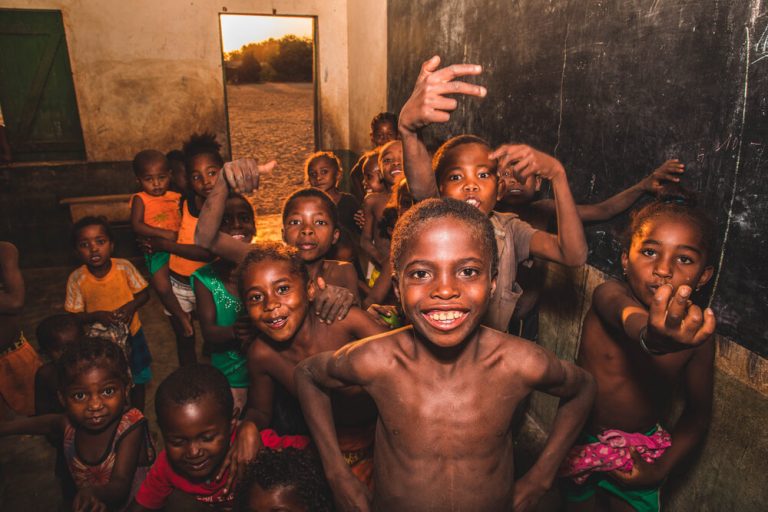
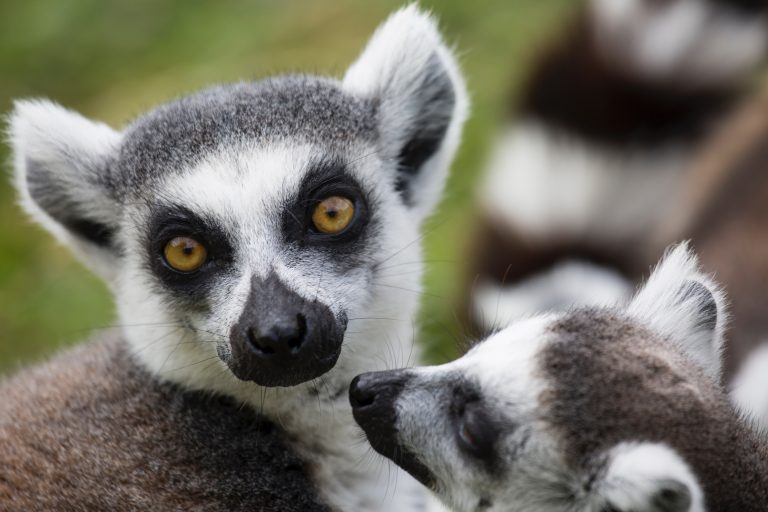
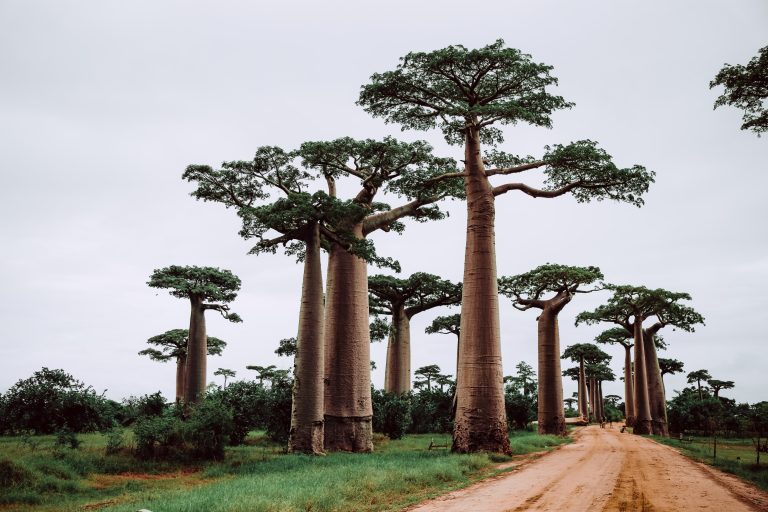
Community involvement
Madagascar is among the eight poorest countries in the world, and its south and west parts are the poorest. Nearly all children in rural areas suffer from malnutrition, many schools are ruins and education fails. Each year there is less rainfall, hampering the food supply. The threatening drought is directly linked to deforestation and climate change. Many organisations warn against an unprecedented catastrophe. In September 2021 the United Nations declared Madagascar to be the first country in the world where climate change causes famine.
The Zazamalala model for nature conservation and reforestation stresses the need to cooperate with the people living around the forest. Traditionally the villagers were using the forest as a supermarket and construction market and considered bush meat a delicacy. This relates to poverty and hence, economic independence and community development are required. Focus points of the Zazamalala Foundation are:
- As many steady jobs for local people as possible.
- Information about nature conservation, climate change, the function of the forest, health.
- Repairing schools and support of education.
- Distribution of solar cookers.
Solar cookers
Until a few years ago, mothers living in the villages around the Zazamalala forest sent their children to collect fuelwood. Otherwise the family could not cook that day. Charcoal was available, but shortage of trees made it expensive and many could no longer afford it. At Zazamalala we want to keep the dead wood in the forest for funghi, insects and reptiles.
There are 27 million Malagasy people dependent on fuelwood for their meals. Besides the pollution and CO2 emissions, the demand for fuelwood cannot be met by fallen, dead wood, forcing families to cut down the remaining forests which places a huge burden on the last remaining patches of wild forests that exist in Madagascar.
That’s why the Zazamalala Foundation provides solar cookers to local mothers. The cookers are constructed in Madagascar by Ades-Solaire, an NGO from Switzerland. However, we don’t give presents! The mothers work for five days in the Zazamalala nursery to learn how difficult it is to create a new forest. We hope that they will appreciate the existing forests more and share this with their children. The solar cookers are very popular and that’s why we want to distribute more.
Will you help us?
For €17 you’ll make a Malagasy family independent of fuelwood from the forest.
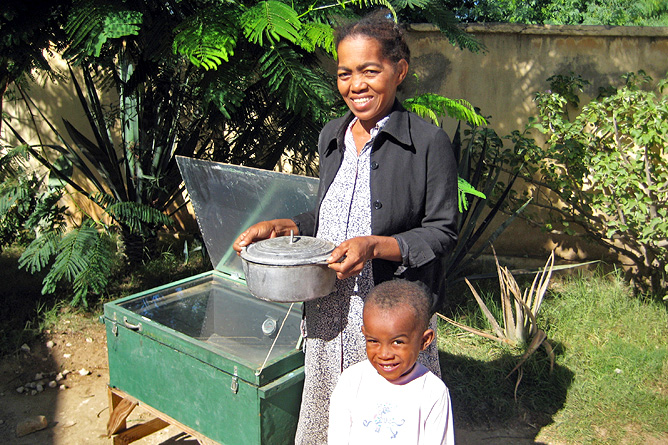
Local schools
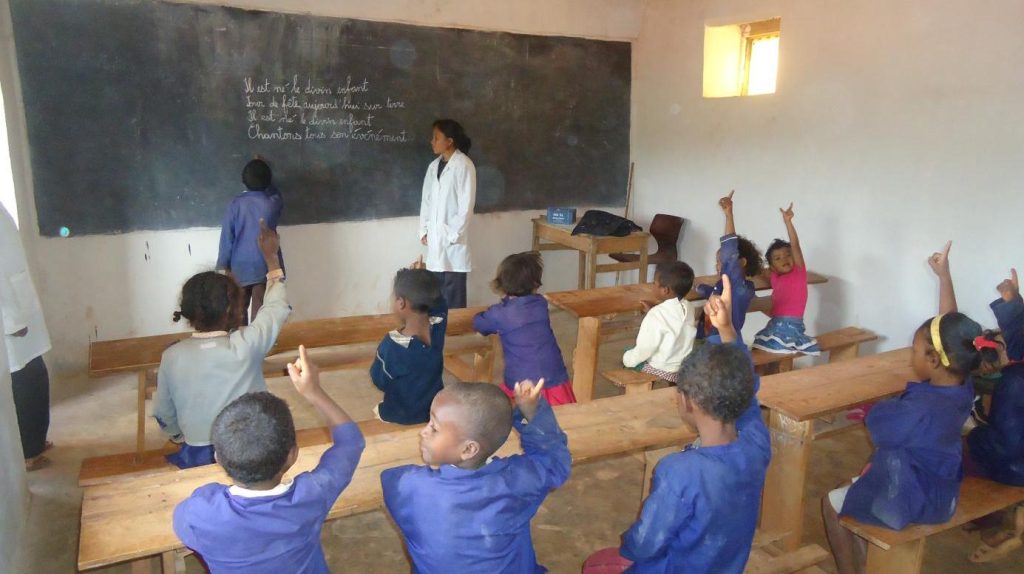
There are two schools for about 1000 children around the Zazamalala forest. They are in ruins and proper roofs, doors, windows en floors are missing. Many children are sitting in the mud while rain is pouring down. There are no toilets in the villages and the surroundings of the schools are polluted and it stinks. The classes are crowded and there are insufficient teachers. Half of them are teaching assistants (vakatera) who earn €5 a month and have to work at least part-time in the rice paddies or elsewhere to survive. During their absence, the children are sent home. Consequently, the level of education is very poor.
We received the request to construct latrines and repair the schools. In August 2019 and Februari 2020 we visited the schools with a group of European specialists. We also discussed these problems with people from the Dutch NGO Wilde Ganzen. As a result, the Zazamalala Foundation has the following plans for the remainder of 2021:
- For each school we construct four latrines.
- We repair roofs, doors, windows.
- We make concrete floors.
- Our carpenters will construct 90 school desks for two children each.
- We install a board with education specialist from Morondava.
Their recommendations are the basis for following steps to improve local education.
We haven’t the means to finance all these necessities.
Will you help us?
- With €5 you pay for the school fee, paper and pencils for one child for one year.
- With €25 you pay for a school desk.
- With €50 you pay for a proper monthly salary of a teacher.